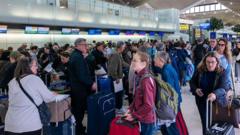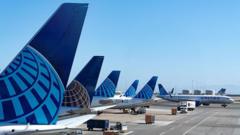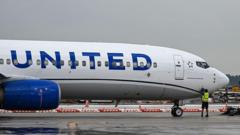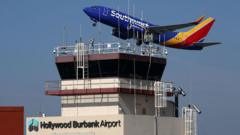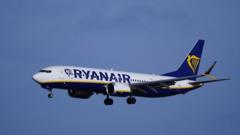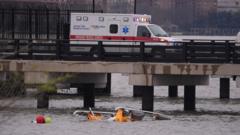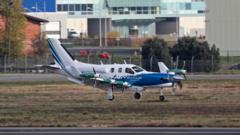The incident, reported on April 28th, involved controllers losing "the ability to see, hear, or talk to" the aircraft they were managing. This prompted several employees to take trauma leave, impacting operations heavily and resulting in over 150 flight cancellations on Monday alone, as tracked by FlightAware. Newark is a critical hub for air travel in the New York area, yet it faces persistent staff shortages.
The FAA admitted in a statement that the outdated air traffic control system is adversely affecting its workforce and acknowledged that the agency struggles to replenish its staffing quickly. Despite ongoing training efforts, the agency indicated that fully qualified controllers are not available to immediately fill gaps.
The operational breakdown has drawn sharp criticism, especially from major airlines. United Airlines reported that it had to cancel 35 flights daily due to Newark's inability to handle the existing volume of traffic. CEO Scott Kirby highlighted that recent technological failures in communication tools for the FAA have directly led to dozens of diversions and hundreds of delays. Moreover, Kirby mentioned that the situation has been exacerbated by over 20% of FAA controllers opting to leave their positions.
The National Air Traffic Controllers Association stated that while it could not disclose the exact number of controllers who took leave, it was in accordance with provisions for employees affected by traumatic workplace incidents. The FAA is currently undertaking efforts to bolster its workforce and announced plans to hire 2,000 new controllers in 2023, as part of a strategy to address the current staffing crisis.
As air traffic remains a crucial component of U.S. transport, the administration's commitment to enhancing air traffic control capabilities will be crucial as Newark and similar airports continue to navigate ongoing challenges in safely and efficiently managing flight operations.
The FAA admitted in a statement that the outdated air traffic control system is adversely affecting its workforce and acknowledged that the agency struggles to replenish its staffing quickly. Despite ongoing training efforts, the agency indicated that fully qualified controllers are not available to immediately fill gaps.
The operational breakdown has drawn sharp criticism, especially from major airlines. United Airlines reported that it had to cancel 35 flights daily due to Newark's inability to handle the existing volume of traffic. CEO Scott Kirby highlighted that recent technological failures in communication tools for the FAA have directly led to dozens of diversions and hundreds of delays. Moreover, Kirby mentioned that the situation has been exacerbated by over 20% of FAA controllers opting to leave their positions.
The National Air Traffic Controllers Association stated that while it could not disclose the exact number of controllers who took leave, it was in accordance with provisions for employees affected by traumatic workplace incidents. The FAA is currently undertaking efforts to bolster its workforce and announced plans to hire 2,000 new controllers in 2023, as part of a strategy to address the current staffing crisis.
As air traffic remains a crucial component of U.S. transport, the administration's commitment to enhancing air traffic control capabilities will be crucial as Newark and similar airports continue to navigate ongoing challenges in safely and efficiently managing flight operations.

